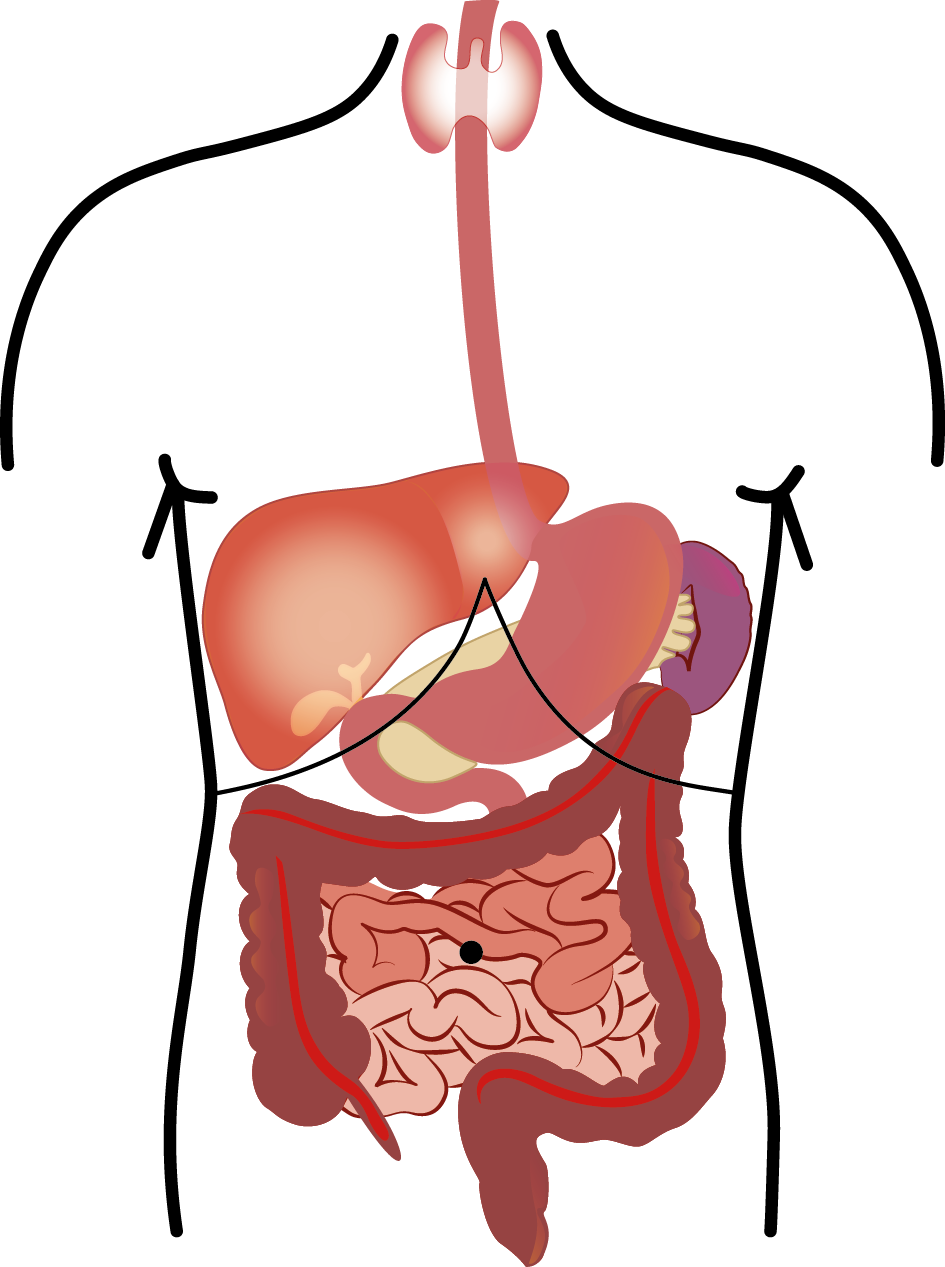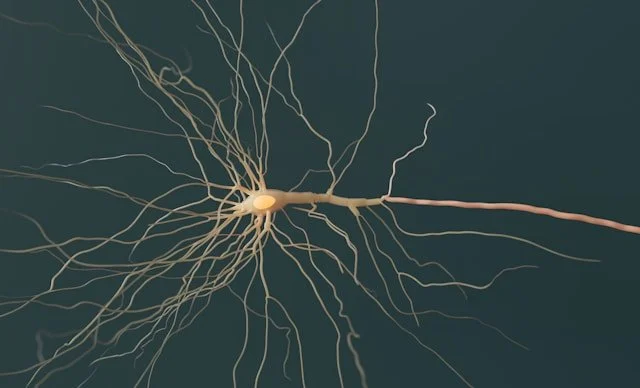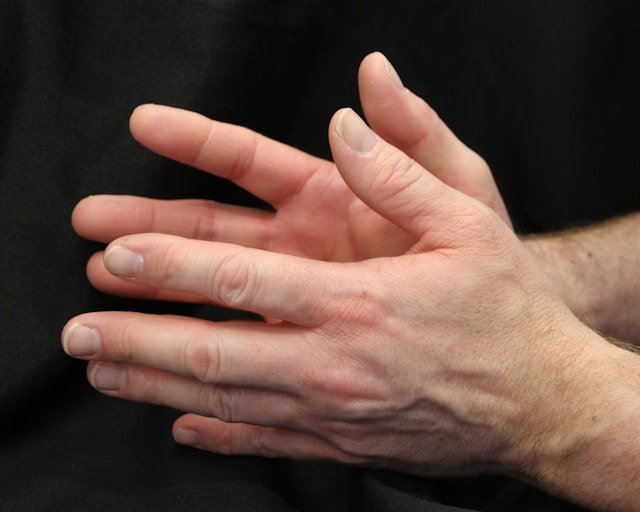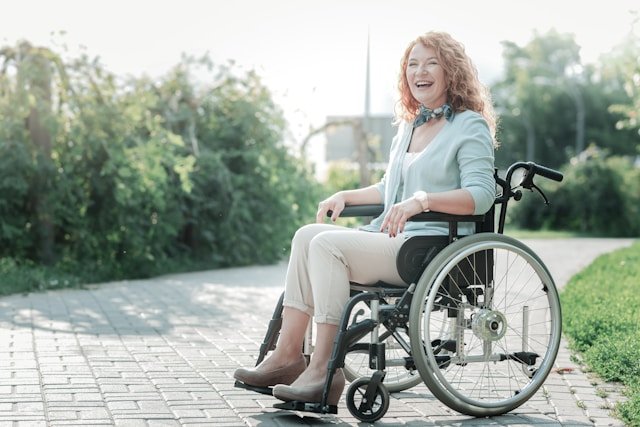

Phantom pain - when the pain remains even though the body is missing
Phantom pain - when the pain remains even though the body is missing
How physiotherapy and occupational therapy can provide effective support for phantom limb pain after amputations
A foot that burns - even though it is no longer there. A pulling sensation in an arm that has been amputated. Phantom pain is one of the most impressive examples of how strongly our nervous system can continue to "feel" the body even after an amputation - and sometimes make it "suffer".
Many patients find this pain particularly agonizing and irritating: How can a part of the body that no longer exists hurt? And what can be done about it?

Functional heart problems - when the heart beats without being ill
Functional heart problems - when the heart beats without being ill
How physiotherapy and occupational therapy can help with heart symptoms without an organic cause
A stumbling in the chest, a sudden rapid heartbeat, a feeling of tightness - and yet the ECG shows that everything is fine. Functional heart complaints are among the most common physical symptoms without a clear organic cause. For those affected, this is often difficult to understand - and even more difficult to bear.

PTSD and pain - when the body stores memories
PTSD and pain - when the body stores memories
How physiotherapy and occupational therapy can help people with post-traumatic stress disorder
Traumatic experiences leave their mark - not only on the psyche, but also on the body. Many people with post-traumatic stress disorder (PTSD) suffer from chronic pain: their head, back, stomach or joints ache, even though there is often no clear medical cause. The explanation often lies not in the tissue - but in the connection between the nervous system, body memory and incompletely processed memories.

Femoral neck fracture - more than just a bone that heals
Femoral neck fracture
A femoral neck fracture - medically known as a proximal femoral fracture - is one of the most common fractures in old age. Fall, sudden pain, operation, rehabilitation. At first glance, a clear sequence of events. And yet this fracture often starts more than just a physical healing process.
For many patients, a femoral neck fracture marks a threshold: between mobility and the need for care. Between independence and dependence. Between trust in their own body - and fear of the next fall.

Secondary disease gain - a taboo with therapeutic relevance
Secondary disease gain
There are few terms in therapeutic work that are as sensitive as this one: secondary disease gain. It quickly sounds like manipulation, like "pretending to be ill", like drama. And yet the concept is neither derogatory nor malicious - but a psychodynamic phenomenon that helps us to better understand chronic processes.
Secondary illness gain means:
A person experiences certain benefits through their illness - consciously or unconsciously - that are not directly related to the actual symptom. It is therefore not about faking illness, but about experiencing positive side effects in a difficult condition.

Long Covid in therapy - still relevant, still challenging
Long Covid - still relevant
The acute pandemic is over - but for many patients, corona is far from over. Tiredness, shortness of breath, concentration problems, palpitations, pain, hypersensitivity - all of this remains. Sometimes subtle, sometimes paralyzing.
Long Covid is no longer a temporary phenomenon, but a chronic challenge - for those affected as well as for us therapists.

Kinesiophobia - when movement becomes a threat
Kinesiophobia
"I'd rather not move - I don't want to break anything again."
"If I bend down, the pain comes back - it was the same last time."
"I'd do sport, but I'm just too scared."
We encounter these phrases every day in our practice. There is often more behind them than just caution: a deeply rooted fear of movement - kinesiophobia.
The term is made up of the Greek kinesis (movement) and phobos (fear) and describes a psychological reaction that can significantly influence the course of chronic pain.

Pain & calf cramps - when muscles sound the alarm
Calf cramps
A sudden, stabbing pain in the calf - usually at night, often without warning. Seconds that feel like minutes. The muscle contracts hard and unyieldingly, nothing works anymore. Afterwards, there is often a dull aftertaste, a pulling, an uneasy feeling - in the body and in the head.
Calf cramps are one of the most common neuromuscular complaints - and yet they are poorly understood. This is because their causes are as varied as the patients themselves.

Pain & trigeminal neuralgia - When lightning strikes the face
Trigeminal neuralgia
is one of the most painful diseases in the human body - as sufferers report time and again. Like an electric shock, a knife thrust or a sudden flash of lightning that seems to strike the face for no reason. Hardly comprehensible to outsiders, but often existentially stressful for those affected.
The attacks of pain come on suddenly, last seconds to minutes, are sharp, stabbing, shooting - usually on one side of the cheek, upper jaw, lower jaw or forehead. Even the smallest triggers such as wind, chewing, brushing your teeth or even speaking can provoke the attacks.
What remains is not only pain, but often also fear: of the next attack, of losing control, of social withdrawal.

Pain & joint rheumatism - When movement causes anxiety
Rheumatoid arthritis
- usually referred to medically as rheumatoid arthritis - is more than "just" an inflammation of the joints. It is an autoimmune disease that affects the entire system: metabolism, immune system, psyche and attitude to life.
The pain is omnipresent: stiff in the morning, pulling during the day, throbbing at night. It wanders, flares up, calms down again - and over time leaves behind not only physical but also emotional traces.
We hear statements like this again and again in therapeutic practice. And they show that pain is not just a physical event. It is a warning signal - and often part of a much larger, inner state of alarm.

Pain & anxiety - when the body sounds the alarm
Pain & anxiety - when the body sounds the alarm
"I'm in constant pain - but all examinations are normal."
"My heart is racing, my chest is constricting, I can't breathe - and no one can find anything."
"I wake up at night, completely cramped. Everything hurts. And I'm terrified."
We hear statements like this again and again in therapeutic practice. And they show that pain is not just a physical event. It is a warning signal - and often part of a much larger, inner state of alarm.

Pain and ME/CFS - When even rest is exhausting
Pain and ME/CFS - When even rest is exhausting
"I'm tired " - this sentence is often used, but it is rarely meant in an existential sense. In ME/CFS (myalgic encephalomyelitis/chronic fatigue syndrome), however, fatigue is not a vague mood disorder, but a debilitating, omnipresent condition. A condition that does not improve with sleep, but often worsens massively with minimal exertion.
A silent disease - with a loud body
According to estimates, ME/CFS affects over 300,000 people in Germany alone - the number of unreported cases is likely to be significantly higher. Many patients spend years searching for a diagnosis.

Multiple sclerosis - living with a nervous system in transition
Multiple sclerosis - living with a nervous system in transition
Numbness, visual disturbances, unsteady gait. Then days without symptoms - and suddenly a new attack. Multiple sclerosis (MS) is a disease that irritates, frightens and changes. It is not always visible - but it can be felt profoundly. For many sufferers, the diagnosis marks the beginning of a journey into the unknown: with questions, fears and hopes.

Bursitis of the shoulder - when every movement hurts
Bursitis of the shoulder - when every movement hurts
Putting on your jacket, lifting your arm, sleeping on your side - suddenly everyday tasks become a challenge. If the shoulder is inflamed, swollen and sensitive to pressure, this is often caused by bursitis - an inflammation of the bursa. What begins harmlessly can quickly become a painful restriction of movement - with significant effects on everyday life, sleep and mood.

CMD - when the jaw gets out of balance
Headache & tinnitus - when the jaw gets out of balance
One-sided headaches, pressure at the temples, ringing in the ears that comes and goes. For many people, the suffering begins in the head - and often ends with the jaw. What may seem surprising at first glance has a clear physiological basis: the temporomandibular joint is closely connected to the neck, ears and base of the skull. And this is where the story of a widespread but often overlooked complaint begins: CMD - craniomandibular dysfunction.
It is estimated that more than 10 million people in Germany suffer from tinnitus - many of them permanently. The good news is that even though tinnitus is often not completely "curable", there are now effective therapeutic ways to regulate it , calm it down and live better with it.

Intervertebral disc surgery - get moving again instead of taking it easy
Intervertebral disc surgery
What physiotherapy and occupational therapy can do before and after surgery
For many sufferers, disc surgery is the final step after a long ordeal of back pain, radiating discomfort or numbness. However, surgery alone rarely provides a complete solution - because the real journey begins afterwards: back to movement, back to self-efficacy.
Physiotherapy and occupational therapy play a central role in this - both before the operation for stabilization and education, as well as postoperatively to rebuild function, resilience and confidence in one's own body.

Ankylosing spondylitis - living with the pain
Ankylosing spondylitis - living with the pain
If the spine becomes a construction site and movement hurts, although rest does not bring any relief - then ankylosing spondylitis could be the cause. A chronic inflammatory disease that affects the back, but causes far more than just "back pain".
Ankylosing spondylitis - today usually referred to as axial spondyloarthritis - is a disease in which the immune system turns against its own structures. Inflammation occurs where tendons, ligaments and joint capsules radiate into the bone - particularly in the area of the sacroiliac joints and the spine.

Spinal canal stenosis - when the spine becomes narrower
Spinal canal stenosis - when the back becomes narrower
Pain when walking, numbness in the legs, the need to constantly bend forward: spinal stenosis is a typical symptom of old age - but anything but harmless. It restricts you, makes you feel insecure and changes your posture - both physically and mentally.

Depression and pain - when body and soul suffer together
Depression and pain - when body and soul suffer together
Chronic pain is more than just a physical symptom. It influences our thoughts, our emotions and our enjoyment of life. And vice versa: a depressive mood changes the perception of pain, reduces resilience and can block therapy. Body and soul form a sensitive interplay - especially in pain therapy.
Pain changes the psyche - and vice versa.
